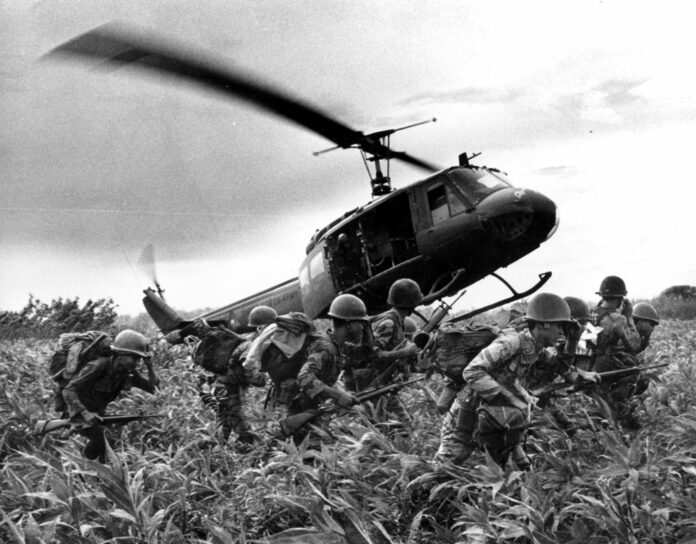Rethabile Mathealira-Molapo
In his 1970 number-one hit, Edwin Starr posed a question that has echoed through generations: “War – what is it good for?” His answer was as thunderous as it was true: “Absolutely nothing.” Yet across time and continents, war persists, not merely as a strategy, but often as a default response to fear, disagreement, or ambition. It is rarely questioned. When we do engage with it, the focus is usually on who started it, who is right or wrong. We may express compassion for its victims. But seldom do we stop to ask the deeper question: why do we, as a society, still accept the very idea of war?
Beneath the politics and policy, war often serves something quietly dangerous, human ego. It enables those in positions of power to project strength, assert dominance, or claim ownership over land, resources, and decisions that were never theirs to begin with. At its core, war is about conquest and dispossession. It says: “What you have, I believe I deserve. And I will take it, even if it costs lives.”
The tragedy is not only in the violence itself, but in how easily it is justified. So the idea of war is that people, ordinary people who want nothing more than to live, to raise families, to contribute to their communities, can be sent to fight and die to satisfy political aims or maintain control. These are people with dreams and relationships, people who simply want peace and stability. Yet they become instruments in conflicts shaped by decisions made far away from the battlefield, often by those shielded from the consequences.
And we are told this is honourable. That it is a sacrifice worth making. That there is dignity in dying for one’s country. But do we ever stop to ask: Is there dignity in making life so easily disposable? Have we so normalised the practice of sending young people to die that we have forgotten to question the logic behind it? Why have we accepted that disagreement should lead to destruction, and that violence is a necessary part of leadership?
The lives of those who fight in wars are often treated as collateral, not because they are unimportant, but because the machinery of war has made it seem acceptable. We examine which side is justified, but we do not question the act of war itself. What does this say about how we value life?
Most of the time, those who fight each other on opposing sides have no personal quarrel. Their lives intersect because two or more governments, distant figures of authority, could not resolve their differences without force. These soldiers become representatives in battles not of their making, living out the consequences of decisions that were made in safety, with distance, comfort, and detachment.
But the violence of war does not stop at the frontlines. Innocent civilians, who have no part in the power struggles, pay a price that is rarely acknowledged. Women pay with their bodies as sexual violence is often weaponised against them. Entire communities are uprooted. Families are torn apart. Children lose not only their parents but also their sense of safety, their innocence, and their childhoods.
War ravages not just lives but the life within places. Homes that once echoed with laughter and prayer, love and rest, are reduced to ash. People lose not only property, but memories, the chair where a grandfather sat every morning, the place where children liked to play, the tree planted by a father’s hand. Ties to land that span generations are shattered in moments. And still, we call it strategic.
It can be said of leaders that it is easier to wage war when they are not the ones carrying its weight. When their own families are safe, when their own bodies are not on the frontlines, and when the suffering happens elsewhere, war can feel like strategy or policy. But for those who live through it, war is never abstract. It is the destruction of homes, the death of loved ones, and the end of ordinary life.
What would it look like if leaders could bear the physical weight of their decisions, if those who abused their power were also the first to be exposed to the risks they ask others to take? Would wars last as long? Would they be waged so quickly?
It is not a weakness to question war. In fact, it may be the truest act of strength to ask why we still allow this cycle to continue. If the logic of war means that ordinary people must pay with their lives for the decisions of a few, what does that say about our priorities as a society?
War is not simply a clash of armies; it is a statement about what we are willing to do to others to achieve what we want. It is about the ease with which we overlook the humanity of people we have never met. It is about the silence we maintain when we should ask: what kind of world does this make us, if we allow this to go unquestioned?
And in the end, it is ordinary citizens who pay for it. We pay in grief, in destroyed infrastructure, in the loss of cultural heritage, in the scattering of families, in the disintegration of communities that took generations to build. We pay with the stolen joy of children who should have been playing in schoolyards, not sheltering from bombs. We pay with the brokenness that lingers long after ceasefires are signed.
The logic of war rests on a painful premise: that some lives can be lost for the comfort, control, or pride of others. But it does not have to be this way. We can create systems that prize diplomacy over destruction, dialogue over dominance. We can raise future generations to believe that strength is not proven by taking life, but by protecting it.
So perhaps Edwin Starr’s question still holds power, and still deserves an honest answer. “War – what is it good for?” When we listen not only with our minds, but with our conscience, the answer is still: “Absolutely nothing.”
Summary
- So the idea of war is that people, ordinary people who want nothing more than to live, to raise families, to contribute to their communities, can be sent to fight and die to satisfy political aims or maintain control.
- The lives of those who fight in wars are often treated as collateral, not because they are unimportant, but because the machinery of war has made it seem acceptable.
- People lose not only property, but memories, the chair where a grandfather sat every morning, the place where children liked to play, the tree planted by a father’s hand.

Your Trusted Source for News and Insights in Lesotho!
At Newsday Media, we are passionate about delivering accurate, timely, and engaging news and multimedia content to our diverse audience. Founded with the vision of revolutionizing the media landscape in Lesotho, we have grown into a leading hybrid media company that blends traditional journalism with innovative digital platforms.








